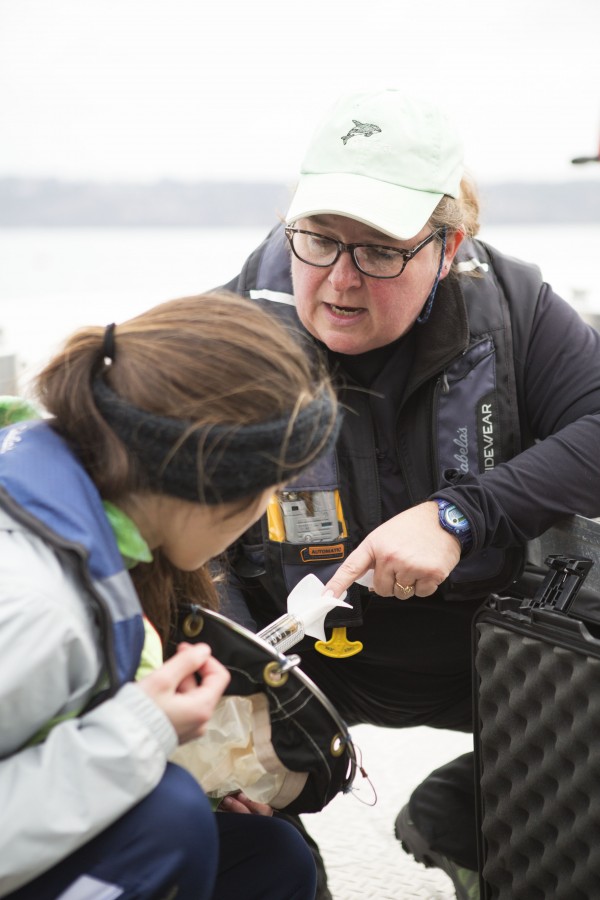Searching the Sound
EVCC students research possible causes of environmental degradation
January 25, 2016
Are people harming the Puget Sound?
That question is exactly what inspired the research expedition of four female Everett Community College students from the Ocean Research College Academy (ORCA).
This valuable ecological research would not be possible without Gary and Kathi Lang, parents of a recent EVCC ORCA graduate. Last year, the Lang family generously donated 3.8 acres of their undeveloped beachfront property on Whidbey Island which provides healthy eel grass for the students to sample for their research and compare to other samples taken in areas with more industrial exposure.
Mooring lines were cast away from the research vessel Phocoena, pronounced FOO-KOO-NA, as the research team set their course across Possession Sound toward Whidbey Island. Along the shallow waters of this shoreline students prepared to collect samples of sediment and eel grass in order to gather evidence about the threats posed by anthropogenic activity in the water: damage caused potentially by pollution and commercial vessel traffic.
“Eel grass is like a nursery for marine life like salmon or crab,” ORCA senior Madeline Sayed explained. If the eel grass suffers in the Puget Sound then entire populations of shell fish, salmon, and larger marine mammals like seals or even cherished orca whales could be threatened without food and shelter.
Along the way, ORCA senior Missy Johnson tallied marine life she observed in the waterway: mallards, cormorants, herons, loons and seals frolicking and looking for food amidst the hydrosphere. Seaspray splashed from the vessel as it cut the through grey mirrored waters reflecting the low fog of a chilly winter morning.
As the vessel approached the shallow shoreline ORCA founder and biologist Ardi Kveven slowed the speed of the Phocoena. It was time to get to work.
In order to collect samples, each member of the research team took their turn operating the sediment grab which operates a lot like “The Claw” at an arcade. ORCA senior Sophia Maggio carefully lowered the sediment claw into the water by lowering the heavy device until it bit the sea floor. Like a seasoned sailor Sophia snatched the nylon rope to trip a spring-loaded pin and sealed the sediment and eel grass in the claw.
After the collection was hauled aboard the deck of the research vessel Madeline Sayed, took on the systematic task of carefully assorting the eel grass samples into 50 mL jars for later lab analysis as Elisa Aitoro recorded depth soundings and location.
The samples will be sent for analysis at an environmental lab right here in Everett. At the lab, technology is used to separate ions in the samples which will be helpful in determining the amount of potentially harmful metals or plastics in a sample through inductively coupled plasma mass spectrometry (ICP-MS). Say that 10 times fast.
Elisa, Sophia, Madeline and Missy all have bright futures ahead. Because of ORCA they are refining their integrated research skills in order to sustain their local environment. Elisa proudly stated, “Through this I am able to explore what I’m going to be doing for a career.”

